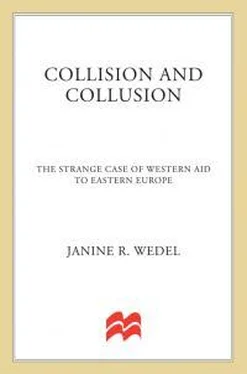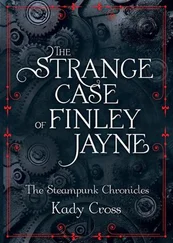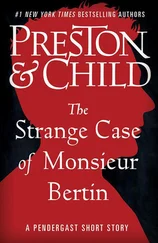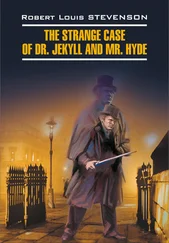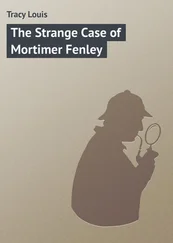I conducted many open-ended interviews and compared and assessed people’s responses to the same questions over time.10 The open-ended format allowed people to define their own issues and to explain in their own terms. I asked people about their own activities, perspectives, and networks, as well as about those of others in their circle or organization. In following particular circles and organizations, I also talked with those outside them, but having direct experience with them.
The information I sought (for example, Western perspectives on Central and Eastern European problems, and Central and Eastern European views of Western projects) could best, and in many cases only, be gleaned through in-depth fieldwork and related interviewing and observation. The networks and interrelationships I explored (for example, among a group of Western consultants, a Russian clan, and certain donor officials) could be obtained only through access to and trust among a variety of informants familiar with the same project. By traveling to the region at regular intervals and following up interviews conducted earlier as much as possible, I was able to track changes in policy implementation and in responses on the Central and Eastern European side.
The second method I employed to gather firsthand information, though less established as a method used by anthropologists, appears to be particularly called for in an ethnography across levels and processes. My research entailed hundreds of interviews and informal conversations with officials, notably aid principals in donor countries. This required using methods and ethics from journalism, which involve techniques such as formal interviewing. It also required cross-checking critical information and confirming key points with multiple sources. Again, it was necessary to move back and forth among field sites to cross-check and verify, if sometimes only by telephone or e-mail once contact had been established.
Because anthropologists increasingly study the powerful, I believe that the anthropological ethic ordaining that “our first responsibility is to those whose lives and cultures we study” ought to be reexamined. The dilemma is about how to proceed when a study examines both those controlling the funding and defining the problems (donors) and those with typically much less influence and recourse (recipients). What of the anthropologist’s responsibility to the more powerful (donor) end? Does an anthropologist have the same responsibility to an agency that employs a public relations staff as it does to a tribe facing extinction? I have concluded that studying powerful institutions and actors binds anthropologists to the ethical code and practices of journalism with regard to treatment of “sources.” Therefore, I protect the confidentiality of sources when they have so requested.11 Anthropologists engaged in research in government agencies on sensitive issues may find it difficult to proceed without employing ethics from journalism because it will be expected of them by their sources.12
In addition to firsthand interviewing and observation, I have consulted reports and internal memoranda of donors and recipients, project documents, studies by other scholars and analysts, investigative reports and reporters, materials obtained under the Freedom of Information Act, and evaluations carried out by donors and independent organizations. The U.S. General Accounting Office and the EU Court of Auditors conducted a number of valuable investigations that served to confirm and broaden my findings. More and more, anthropologists are consulting such works. As Akhil Gupta and James Ferguson write: “Talking to and living with the members of a community are increasingly taking their place alongside reading newspapers, analyzing government documents, observing the activities of governing elites, and tracking the internal logic of transnational development agencies and corporations.”13
FURTHER THOUGHTS
As I have learned, studying programs and policies in which powerful institutions and actors are involved can spur much-needed public debate. It also can generate attack from individuals whose troubling conduct has come to light as a result of the research. For example, after publication of the first edition of this book and articles on the subject, two advisers involved in the aid story sought to discredit my work and to portray me as a conspiracy theorist “going after leading advocates of radical market reform.”14 Confirmation of my findings from sources such as investigatory bodies helped to firmly establish the credibility of the study.
In the course of this study, I have found common ground not only with fellow anthropologists but also with political scientists, economists, lawyers, investigators, and journalists working on pieces of the same issues. The world of the anthropologist, especially one studying across levels and processes, may no longer be so isolated. Perhaps this is an indication that cross-fertilization of approaches and methods increasingly may be called for in anthropological studies of global issues and interactions. By bringing to bear anthropological approaches and methods such as studying through, anthropologists can take the lead.
APPENDIX THREE
Interviews
HOW TO INTERPRET THIS LIST
In conducting research for this book I interviewed some 1,855 people during the period of 1991 to 2000, of which about 690 were on-the-record. The following list is illustrative of categories of people with whom I did formal on-the-record interviews. Many of these people were interviewed several times, and/or are people with whom I had ongoing conversations throughout the aid story.
However, this list does not represent, or underrepresents, several major categories of interviewees with whom conversations were typically “off-the-record” or “on background,” and therefore may not be included here. I had numerous such meetings and conversations with staff members of congressional and parliamentary bodies, staff members of investigatory bodies (including U.S., international, Central European, and Russian), and mid- and high-level actors. This list also underrepresents Western consultants. I had numerous meetings with consultants who provided valuable information but did not wish to be named.
Titles and affiliations are given for the time during which the interview took place. As much as possible, I took titles from business cards provided by interviewees. However, when cards or specific titles were not provided, I instead give a brief description.
Aanenson, Chuck. Program Officer, USAID, Poland.
Abalkin, Leonid. Director, Institute of Economics, Russian Academy of Sciences.
Artemiev, Igor. Private Sector Development Specialist, World Bank.
Austin, Jay. Senior Attorney and Codirector of the Environmental Program for Central and Eastern Europe, Environmental Law Institute, Washington, D.C.
Baldwin, Jeffry. Partner, DRT Poland (subsidiary of Deloitte & Touche), Poland.
Banque, Robert. Director, Office of Technical Assistance, U.S. Department of Treasury.
Barry, Ann R. Deputy Chief of Mission, U.S. Delegation, Organization for Economic Cooperation and Development, Paris.
Barry, Robert. Ambassador and Special Adviser for East European Assistance to the Deputy Secretary of State, United States.
Bazilevich, Leonid. Professor, Department of Management and Engineering Management, Stevens Institute of Technology.
Bejger, Peter. Media Advisor, USAID-funded Ukraine Market Reform Education Program.
Bernard, Richard P. Executive Director, Resource Secretariat for the Russian Federation Commission on Securities and the Capital Market.
Bernstam, Michael. Economist, Hoover Institution, Stanford University.
Bielecki, Jan Krzysztof. Former Prime Minister, Poland, and Executive Director, European Bank for Reconstruction and Development, London.
Читать дальше
